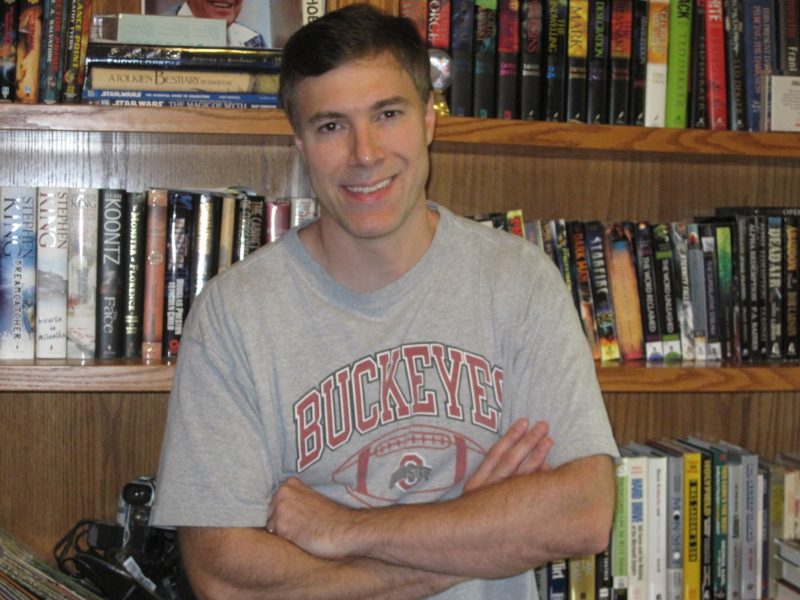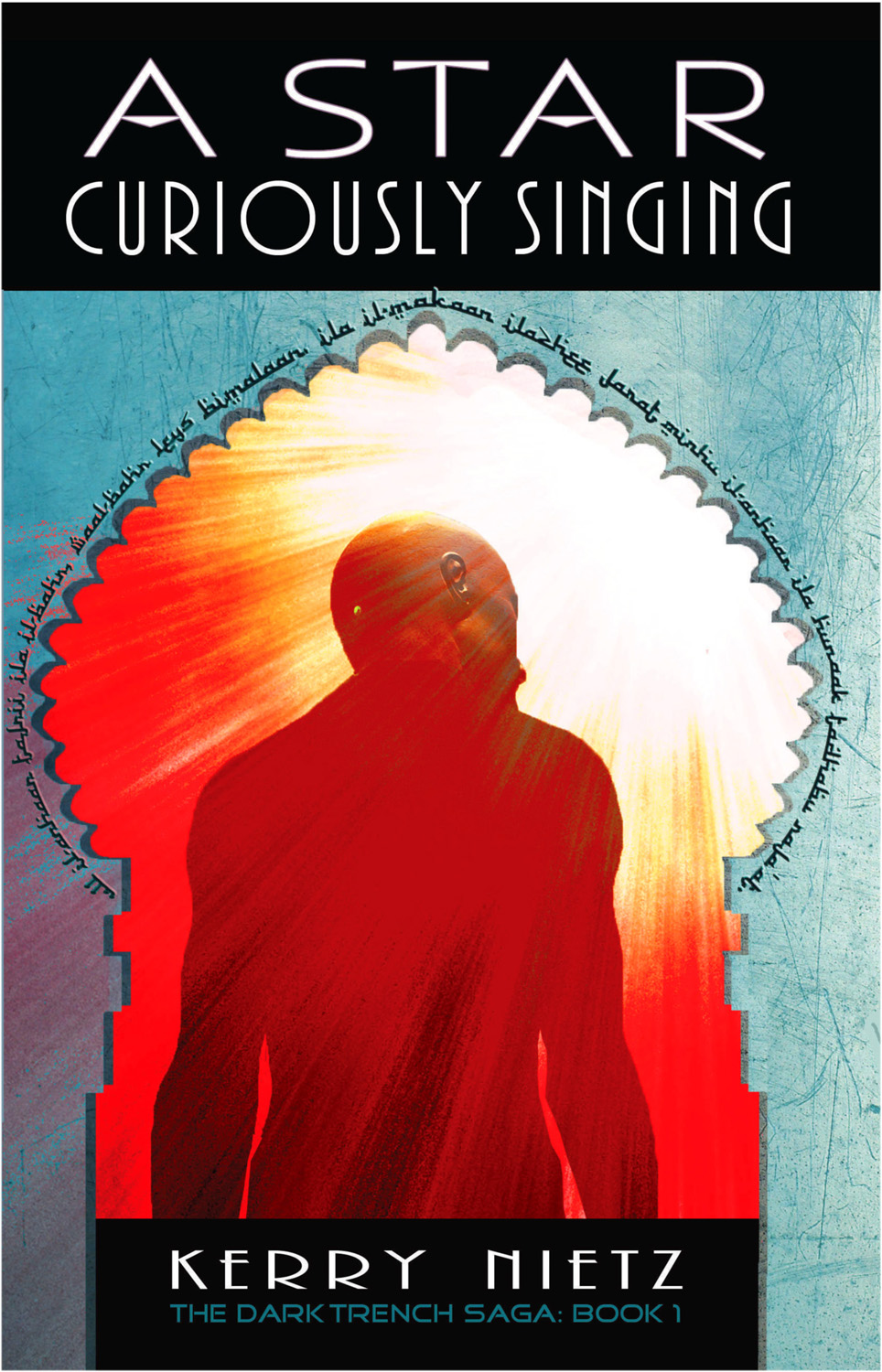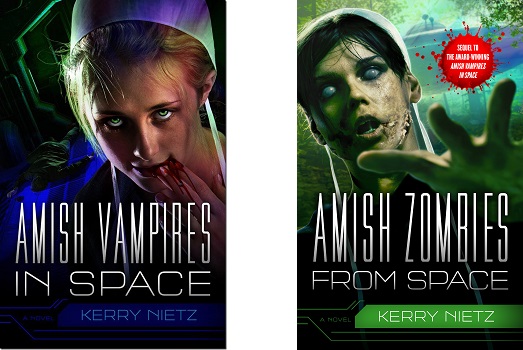Today we are interviewing our own Kerry Nietz! Kerry is a refugee of the software industry. He spent more than a decade of his life flipping bits, first as one of the principal developers of the database product FoxPro for the now mythical Fox Software, and then as one of Bill Gates’s minions at Microsoft. He is a husband, a father, a technophile and a movie buff. He has one non-fiction book, a memoir entitled FoxTales: Behind the Scenes at Fox Software. His award-winning first novel, A Star Curiously Singing, was published in October of 2009. It was followed by two sequels—The Superlative Stream in 2010, and Freeheads in 2011.
Now onto our interview!
1) Everyone seems to have a “how I got published” story. What is yours?
The first book I had published was a non-fiction memoire entitled FoxTales, and the path to publication there really boiled down to sending an email to the right publisher.
The story for how my first novel was published involved a little more drama. It was 2008 and I’d been writing stories for almost six years that either never saw the light of day, or weren’t of interest to anyone. So I started writing a last attempt at a novel and I told myself that I was writing it “just for me” in that I didn’t care if anyone saw it. I simply wanted to pursue this idea about a programmer of the future and see where it led. For me.
I finished the first draft and read it over. It was a little experimental, in that it was written in first person present and broke the fourth wall, but there were aspects that I thought were really cool. The character, the tone, and the world in general, with all these robots and thinking spaceships and whatnot. Cool, cool stuff. I wanted to know if the manuscript was publishable.
The founder of Marcher Lord Press (aka Enclave), Jeff Gerke, was also a freelance editor. One of the services he offered as an editor was a read-through of a manuscript and his opinion of whether it was publishable. So I hired Jeff to do that for my “just for me” story.
Jeff’s initial response was very positive. There were some flaws, but he really appreciated my story and style. He hinted that if the flaws were addressed, he’d be interested in publishing it himself.
I spent the better part of a year addressing those issues. The back and forth continued, with me sending him chunks that I’d changed, and him commenting or suggesting improvements—until finally one of the things he sent back was a contract.
That was six novels ago.
2) When did you realize you wanted to become a writer?
At a really young age. I was a voracious reader growing up. Some of my favorite moments in elementary school were when the teacher would hand out the Scholastic catalog so we could order more reading books. “Yeah! The book catalog is here!” I’m sure it drove my parents crazy, but they humored me. They let me order a lot of books, even though money was sometimes tight.
Consequently, I started writing back then. I still have scraps of things—little scribblings my mother has found while cleaning. In fact, one of them was the start of a science fiction book. A galaxy-spanning adventure.
So, while saying “from birth” might be a stretch, it isn’t far off.
3) Tell us a little about your books.
Love to. I have a cyberpunk sci-fi trilogy that speculates a world under sharia (Islamic) law. The main character is this technological slave named Sandfly. He has an implant in his head to connect him to the future version of the internet, while also keeping him on the straight and narrow via little shocks called “stops.” The trilogy starts with A Star Curiously Singing, which was my “for me” book.
I also have a standalone sci-fi novel entitled Mask. It takes place in the Pacific Northwest in the not-too-distant future where everything is decided by a vote. The main character, Radial, is a collector. If you get voted out of the city, he’s the one to come get you.
I have my memoire FoxTales, of course, and then this duology of Amish / science fiction / monster books. The first of those books, Amish Vampires in Space, is doubtless my most talked about novel, with mentions in Publishers Weekly, Library Journal, the Washington Post, and Newsweek. It even made a short appearance on the Tonight Show last year.
I’ve also been a part of a couple collaborative projects. One is a short story anthology, Ether Ore, which showcases many of the Enclave authors. (Though unfortunately not you, Morgan! You weren’t one of us yet!)
Then there’s that collaborative fantasy story that you were a part of: But Who Would Be Dumb Enough To Even Try It? Each week, for fourteen weeks, a different Enclave author would pick up the reins of the story—often from the perspective of a different character—and run with it. It was terrific fun and real seat-of-your-pants writing. Challenging, enjoyable, and a bit chaotic.
4) Who are your books aimed at? If applicable: What are some of the challenges of writing for your audience?
I think you have to be careful at aiming your books at anyone, because more often than not you’ll miss the mark in some way. Especially when you have more than a few readers. Everyone has different expectations and different elements they love about your last book.
Write the story that’s in you. It will find its own audience.
5) Describe your feelings when you opened the box and saw the first published copies of your very first book?
I had this unusual experience with my first book, FoxTales. The book is about my time as a fresh-out-of-college computer programmer at a small company named Fox Software. The book was “released” at a developer’s conference for one of the products Fox created. It was the equivalent of a Star Trek convention, but for software. Hundreds of loyal Fox users.
The first time I saw the book was at that conference, and it was only a few hours before I was going to give a speech to introduce the book. My first response (on the inside) was “What is this cover all about?” It was the first time I’d seen the artwork, and it was sort of weird. Had a big, mechanical Fox and two guys in clean room suits.
Still, it was great to finally hold the book in my hands. Just as great, though, was what happened next.
The publisher had copies of the book—one for each attendee—placed in brown paper bags which he then handed out as the attendees filtered into the room where I was going to speak. They were instructed not to open them.
My speech touched on some of the stories from the book and then I said something like “There are too many stories to tell you here, though. So I wrote them down in book form, and they are—” And at that point the conference-goers figured it out. There was this explosion of sound as the bags were ripped open. Like a brush fire igniting. It was awesome.
6) Star Wars or Star Trek?
I’m a pretty even split there. Star Wars (the original) was the first movie I saw without my parents, so it has this special place in my heart, not only because of what was shown, but because it signified this tiny step of independence. But yeah, I loved everything about it. It was when I first realized how moving and powerful, yet still fun, science fiction could be.
That said, I graduated with a minor in Science, and most of those credit hours were filled with Astronomy courses. I loved the study of the stars and planets. I absorbed the stuff. I think I was near the top of the class in every Astronomy course I took without really trying. Star Trek appeals to that side of me. The “I wonder what is out there and how it works” side. Those who read my books will frequently see that side trickle in. I like using real science when I can.
7) Favorite color?
Orange! Why? It makes me happy to look at, and it is the only color that has a taste.
8) What’s your favorite holiday memory?
In college, my parents got me a small telescope for Christmas. It wasn’t something I asked for, or had ever talked about. They somehow figured out from my conversations or even what I was watching on TV (Star Trek: TNG was on then) that a telescope was something that would delight me. And they were right!
I hope to have a few of those moments with my children.
9) Do you have a favorite Bible verse?
“Cast your cares on the Lord. He will sustain you, he will never let the righteous fall.” Psalms 55:22.
Another favorite is Proverbs 3:6 – “In all your ways acknowledge Him, and he will make your paths straight.”
10) Do you listen to music while you write? If so what are some examples?
Ha! I’m listening to music right now. The self-titled album by a talented young man named Alex Preston. (The third place contestant on American Idol a few years back.) Good stuff.
Normally I don’t listen to music while I write, though. I can’t bear the distraction.
I often listen to something while I edit, but that is typically symphonic in nature. (I can’t hear people sing while I’m working with words. It messes with my head.)
While editing my last book, Amish Zombies from Space, I listened to a lot of Hans Zimmer soundtracks (Batman, Man of Steel). Has to be something epic when you’re writing an epic, right?
11) Does anyone else in your family have musical/writing/artistic skills?
Yes. My wife Leah is a talented bead artist. She has examples of her work on eBay every week. Just search for “Leah Nietz”.
My eight-year-old daughter seems to have the knack too. She can look at something—an empty juice box, for instance—and come up with something artistic she can make out of it. For instance, last school year she thought up a paper hand puppet that her teachers liked so well they wrote up instructions on how to make it for the whole class.
***
Thank you, Kerry, for joining us today! Here is where you can find Kerry online:
Website : www.nietz.com
Facebook: www.facebook.com/pages/Kerry-Nietz
Twitter: @KerryNietz




